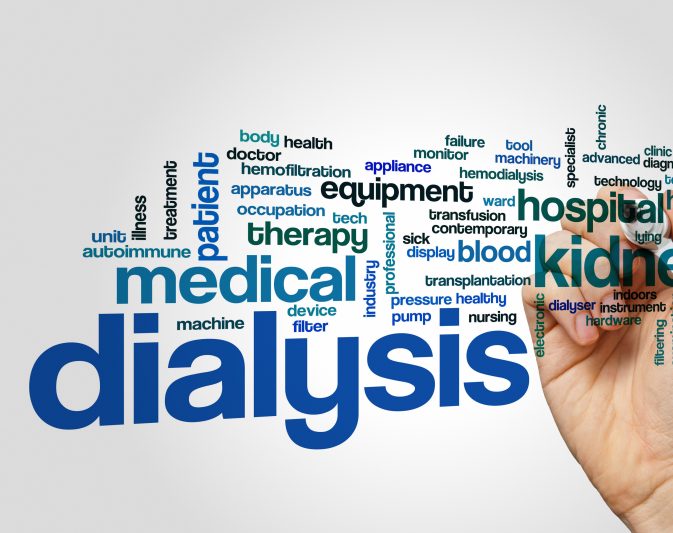How to Get Disability Benefits for Kidney Disease in Chicago, IL.
Kidney problems—like Chronic Kidney Disease, renal failure, and kidney transplant surgery—often result in staggering medical expenses and frustrating limitations to everyday life. In addition, they may also present serious obstacles to maintaining employment.
The most common kidney ailment, Chronic Kidney Disease (CKD), affects 30 million Americans, and millions of others are at increased risk of the disease according to the National Kidney Foundation. The foundation says that CKD and kidney failure are leading causes of hospitalizations in America. At an average of ten visits annually, CKD is second only to cancer. Additionally, they are leading causes of the loss of productivity, because of the amount of necessary medical care and the toll they take on a person’s body. Tragically, CKD is often intertwined with other serious medical conditions. For example, CKD can cause hypertension (high blood pressure) and conversely hypertension can cause CKD. For this reason, heart disease is the major cause of death for all people with CKD. People with diabetes and a family history of kidney failure are more likely to suffer from CKD and kidney failure. Ethnicity and age play a role, too. African-Americans, Hispanics, Pacific Islanders, and seniors are all at increased risk for kidney disease.
If you or someone you care about is suffering from a kidney ailment, the Social Security Administration (SSA) has two programs which may be able to offer financial assistance—Social Security Disability Insurance (SSDI) for those who have worked in the past and made Social Security contributions, and Supplemental Security Income (SSI) designed to help those with little or no income. But to qualify for either program, you have to prove that your kidney disease is so disabling that it prevents you from being able to work.
The Social Security Administration maintains a list of conditions with detailed requirements for when the SSA should find a mental or physical condition to be disabling. If an individual matches the requirements in the listings (also called the “Blue Book”) they automatically qualify for disability payments. Listings can be complicated. The listing for Kidney Failure can be found under multiple entries in section 6.00—Genitourinary Disorders.
- Chronic kidney disease with chronic hemodialysis or peritoneal dialysis.
- Chronic kidney disease with a kidney transplant. After 12 months following the transplant, the SSA will consider disability by evaluating any residual impairments.
- Chronic kidney disease, with impairment of kidney function, with A and B:
- Reduced glomerular filtration, which is the rate at which your kidneys filter waste and chemicals out of the blood stream, shown by laboratory findings on two occasions at least 90 days apart during a consecutive 12-month period showing abnormal levels of serum creatinine or creatinine, or a low glomerular filtration rate (eGFR), with at least one of the following:
- Bone degeneration occurring when the kidneys are unable to maintain the necessary levels of minerals, hormones, and vitamins required for bone structure and function, called renal osteodystrophy, with severe bone pain and imaging studies documenting bone abnormalities.
- Neuropathy or other nervous tissue damage that affects peripheral motor or sensory nerves, or both, causing pain, numbness, tingling, and muscle weakness due to toxins the kidneys can’t adequately filter from the blood.
- Fluid overload syndrome causing vascular congestion, documented by one of the following:
- High blood pressure between heartbeats, despite at least 90 consecutive days of prescribed therapy, documented by at least two measurements of blood pressure at least 90 days apart during a consecutive 12-month period.
- Signs of vascular congestion, swelling, or fluid retention, despite at least 90 consecutive days of prescribed therapy, documented on at least two occasions at least 90 days apart during a consecutive 12-month period.
- Anorexia with weight loss determined by body mass index (BMI) of 18.0 or less, calculated on at least two occasions at least 90 days apart during a consecutive 12-month period.
- Complications of chronic kidney disease requiring at least three 48-hour hospitalizations more than 30 days apart within a consecutive 12-month period.
Don’t be alarmed if you don’t meet the Blue Book medical listing – most people applying for benefits do not have conditions that satisfy these criteria. There is another way to be approved for benefits. The SSA also awards disability benefits based on how your kidney failure creates limitations for you and interferes with your ability to work. Bear in mind, CKD or renal failure is not enough, on its own, to qualify an individual for Social Security disability benefits. To qualify, you must demonstrate that your symptoms prevent you from sustaining full-time competitive employment on a consistent and reliable basis. Like all disability applications, your condition must be expected to last and keep you out of work for at least 12 months.
Many individuals with kidney disorders are turned down on their initial disability application, but most of those who obtain legal representation and appeal the denial are successful in earning disability benefits. For a free evaluation of your case, call Chicago’s leading Social Security Disability Attorneys at Nash Disability Law.


